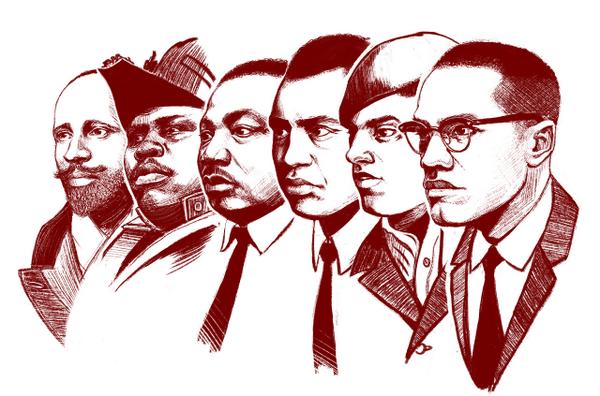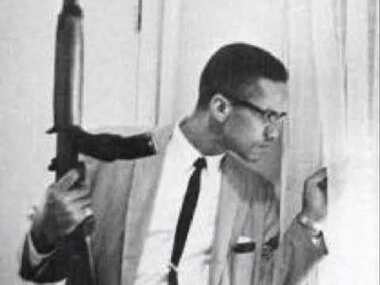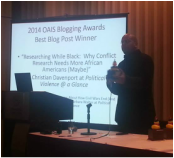These organizations identified that the police were engaging in significant levels of violence within and against the black community. Some of them noted that there was no hope of reforming or negotiating with these institutions and moved that they should be eliminated.
These organizations identified that the problems of African Americans were so far reaching, so devastating and that they were so far behind that they needed to be provided reparations in order to try to survive in the current context - for example, there is the National Coalition of Blacks for Reparations in America which emerges from the same people associated with the Republic of New Africa. Some of the individuals associated with these movements were quite detailed in their historical evaluations to see what happened and why regarding extending assistance to African Americans.
These organizations noted that black communities were largely being bled dry of resources with residents spending their hard earned money elsewhere. This had numerous impacts but most importantly it reduced the overall power of this community by dissipating its potential impact.
These organizations also identified that the problems of African Americans regarding the police and/or white vigilantism required that blacks purchase as well as learn to legally use firearms in case they had to defend themselves. Indeed, they were well aware of the principles of "state failure" where the existing political authorities not only might not protect them but they might be directly in league with the very forces that were threatening black life.
I want to give recognition to these individuals and institutions here not only because they appeared to be accurate in their evaluations of the problems that continue to plague the United States as well as potential solutions for addressing some of these problems but also to note that police abolition, reparations, buying black and African American self-defense were not the only items on their platform. Several of the topics they raised have not gotten any traction in the current environment and it is worth noting them.
For example, some of these organizations talked about not just buying black but African Americans controlling the black economy. "Black economy"? Yes, indeed. Those familiar with the black nationalists are familiar with the phrase "black dollars" but for those unaware:
In a recent report by Nielsen titled, “Black Dollars Matter: The Sales Impact of Black Consumers,” the message was once again highlighted: While African Americans make up just 14 percent of the population, they are responsible for some $1.2 trillion in purchases annually.
Yes, 1.2 trillion. Well, why have these black dollars not turned into political influence? Why would the holders of such wealth continue to be harassed and killed in the street? Well, the black nationalists would tell us that purchasing power is not wealth and wealth is more important for how you are treated than anything else - influencing where you live, what kind of resources you have access to (short and long term) and how relevant police power would be to your life. In addition to this, black nationalists would tell us that it is partly because African Americans might be unaware of their collective purchasing power enamored as they are with the American principles of individuality and trying to be Americans.
As a response to this latter problem, black nationalists advocated that blacks needed to develop a keen sense of themselves as a people/group. Strongly mirroring current BLM calls for joy and self acceptance but devoid of the references to Egypt and Africa, they advocated that blacks take pride in themselves and the achievements of their ancestors. Clearly this was also connected to the earlier efforts of W.E.B. Dubois, Marcus Garvey and J.A. Rogers. This seems very different from the current conversations which seem more like "everybody needs a little light under the sun" approach.
Related, one of the biggest differences concerns the ideas of self-determination. What is Self-determination? From the Under-represented Nations and Peoples Organization
Essentially, the right to self-determination is the right of a people to determine its own destiny. In particular, the principle allows a people to choose its own political status and to determine its own form of economic, cultural and social development. Exercise of this right can result in a variety of different outcomes ranging from political independence through to full integration within a state. The importance lies in the right of choice, so that the outcome of a people's choice should not affect the existence of the right to make a choice. In practice, however, the possible outcome of an exercise of self-determination will often determine the attitude of governments towards the actual claim by a people or nation. Thus, while claims to cultural autonomy may be more readily recognized by states, claims to independence are more likely to be rejected by them. Nevertheless, the right to self-determination is recognized in international law as a right of process (not of outcome) belonging to peoples and not to states or governments.
The preferred outcome of an exercise of the right to self-determination varies greatly among the members of UNPO. For some of our members, such as Acheh, Tibet, Barotseland and Kabylia, the only acceptable outcome is full political independence. This is particularly true of occupied or colonized nations. For others, such as our members from West Balochistan, the goal is a degree of political, cultural and economic autonomy, sometimes in the form of a federal relationship. For others yet, the right to live on and manage a people's traditional lands free of external interference and incursion is the essential aim of a struggle for self-determination. Other members, such as Taiwan and Somaliland, have already achieved a high-level or full self-determination, but are yet to be recognized as independent states by the international community.
As we are trying to figure out exactly what BLM+ is articulating, it is Black nationalists spoke of themselves as a clearly defined group - a group deserving of rights and specific treatment (even if within an established nation state). BLM+ seems to hint at black groupness and shared experience but not to invoke the legal implications of this identity discussed within international law. They speak about the problems of global capitalism but much of what they discuss in terms of problems is set within the context of nation-states.
Finally, Black nationalists never spoke of "economic justice" (i.e., fair treatment within the existing economic system) for that suggests that capitalism is concerned with equitable outcomes - which it is not. Black nationalists did not view the economic system in this manner and this is what prompted them to talk about separation and exiting the US polity and/or economy - things that are largely missed in the current conversation. In contrast, BLM+ seems to envision a situation where the polity steps forward to rectify the problems of the economy.
This is not to say that BLM+ is wrong as much of what they have to say is currently being formulated. Rather, it is to say that moving forward, as problems are being identified as well as potential solutions it will be useful to highlight what has come before and juxtapose it against that which is being said now.



 RSS Feed
RSS Feed
